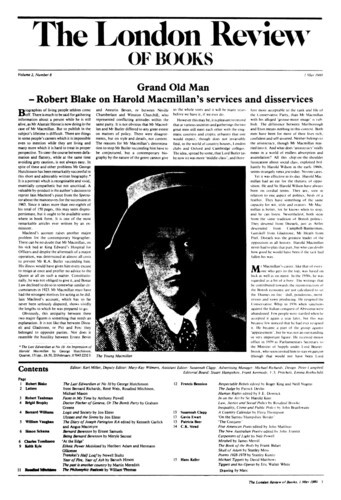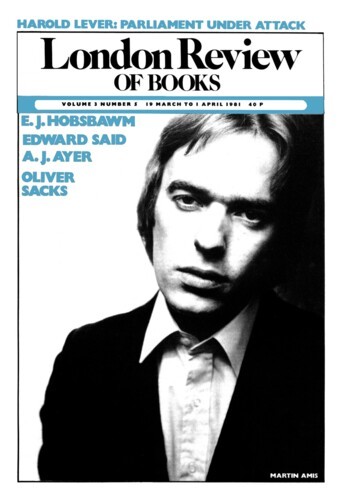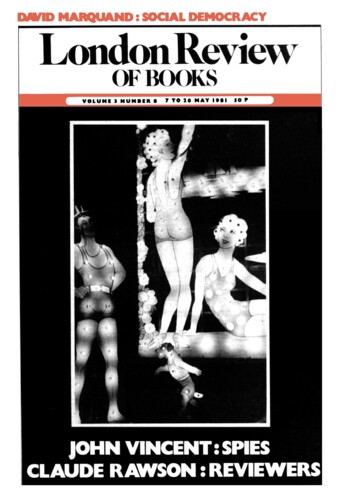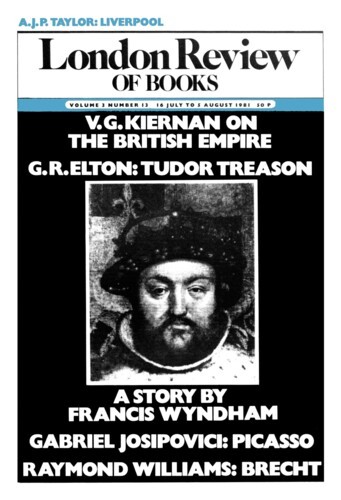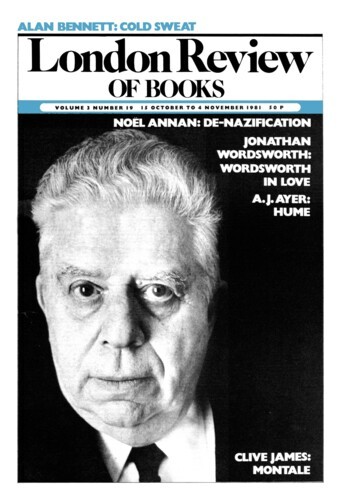What became of Modernism?
C.K. Stead, 1 May 1980
What became of the Modernist movement? It was initiated by Pound and Eliot about the time of the First World War, and in America it set off a further wave of innovation (often referred to as ‘post-Modernism’) after the Second. Beats, Black Mountain Poets, the New York school of the Fifties – all these and others, though clearly different, are unimaginable without Pound, early Eliot, William Carlos Williams and perhaps Wallace Stevens as forerunners. This is the main stream of modern American poetry. In England the picture is very different. Pound is grudgingly acknowledged, distrusted, kept at a distance. Eliot holds his place, but not the revolutionary Eliot. Eliot didn’t convert England – England converted him; and Four Quartets is Modernism neutralised by good form. Who then won the poetic war in England?
